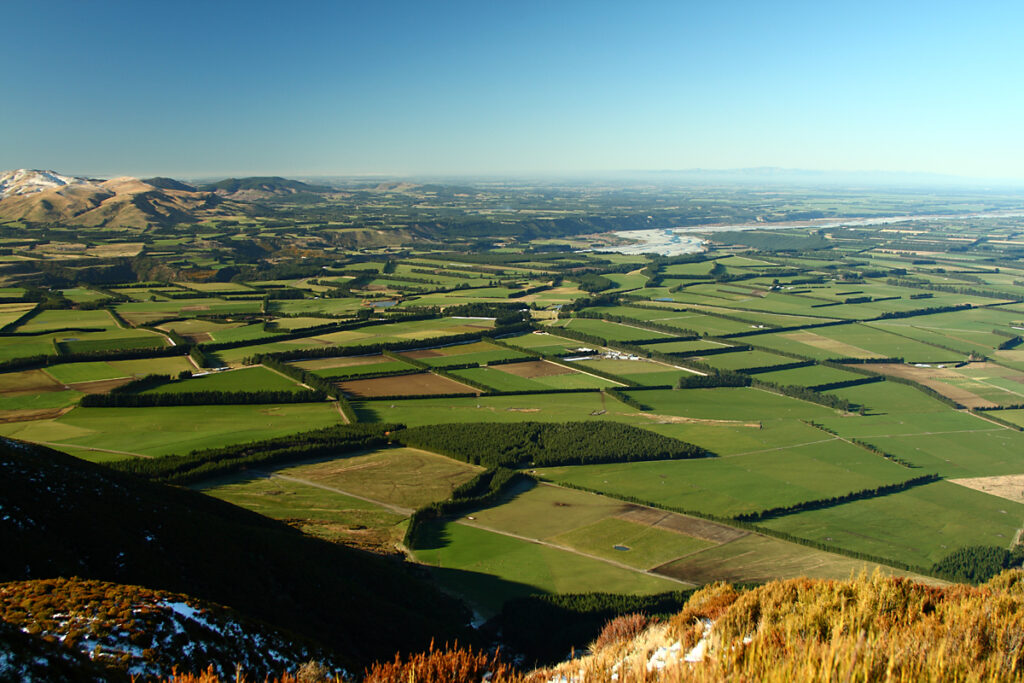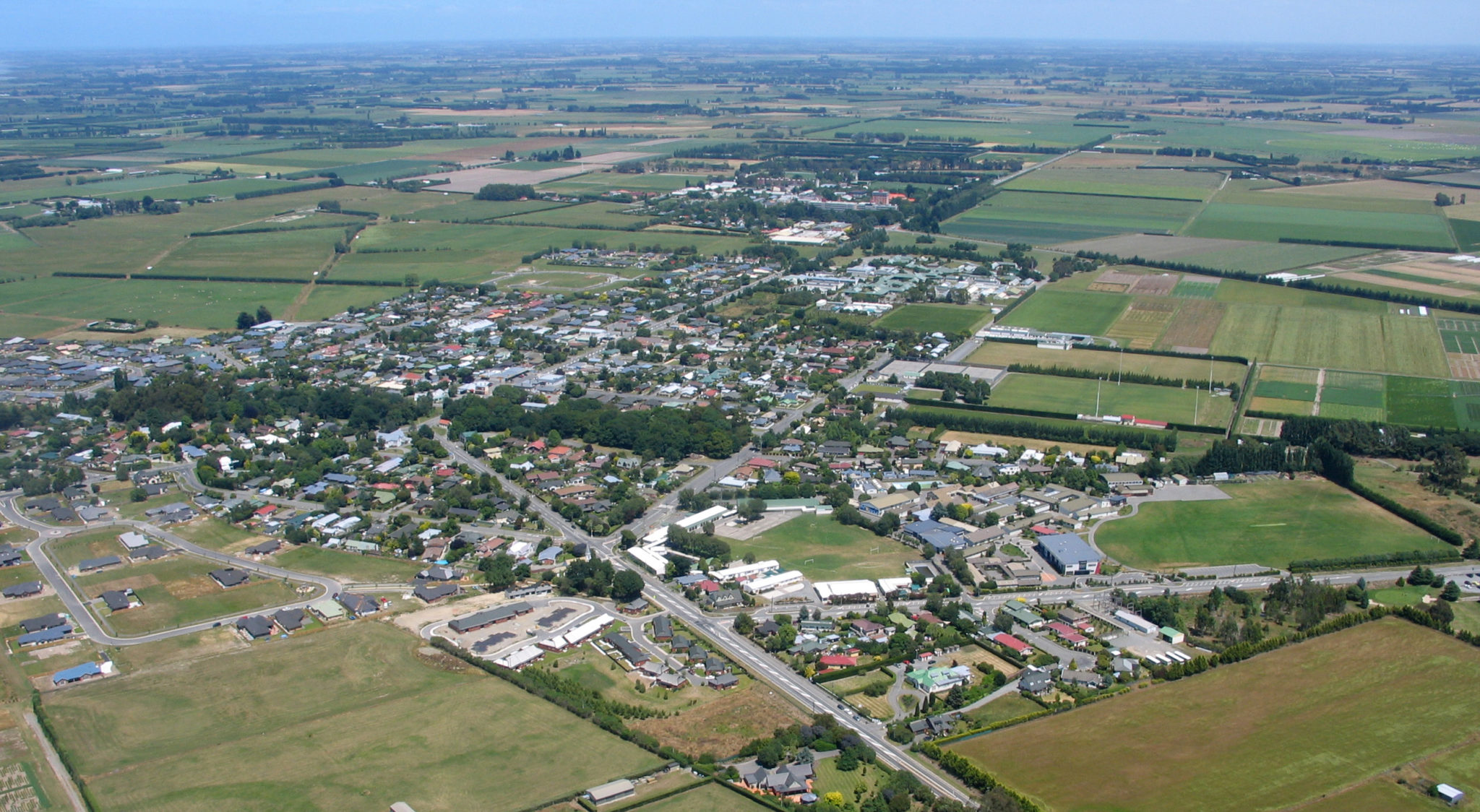Irrigation New Zealand is a member-founded industry organization committed to representing the interests of New Zealand’s irrigation sector and promoting best practices across the industry. With new environmental standards and water management regulations currently being discussed by New Zealand’s government, Irrigation New Zealand is keeping abreast of the policy discussion and preparing to help its members implement and abide by the new laws.
In this interview, Elizabeth Soal, chief executive officer (CEO) of Irrigation New Zealand speaks with Irrigation Leader Editor-in-Chief Kris Polly about her organization’s involvement in the policymaking process and how it is promoting positive environmental outcomes.
Kris Polly: Please tell us about your background.
Elizabeth Soal: I started in the role of CEO of Irrigation New Zealand at the end of February 2019. Prior to that, I worked for 8 or 9 years with the Waitaki Irrigators Collective, which is a group of six irrigation schemes and independent irrigators in the area of North Otago and South Canterbury on the east coast of the South Island of New Zealand. I was the director of strategy and policy and did a lot of work related to planning, relationship management, and general water issues. Prior to that, I was a government policy advisor for the lower South Island at the Ministry of Social Development, based in Dunedin. My role there involved looking at issues related to things like unemployment, labor market development, and social programs. Prior to that, I was at the Ministry of Justice of New Zealand. I hold degrees in politics and law, and I’m currently studying for a PhD in geography with a focus on water governance.

Kris Polly: Please tell us about the history of Irrigation New Zealand.
Elizabeth Soal: Irrigation New Zealand has a vision of irrigation for a thriving and sustainable New Zealand. It was originally formed as a technical organization in the 1970s and then it went into a bit of a hiatus. It was relaunched in the early 2000s, when it was recognized that there was a need for an organization dedicated to representing the interests of irrigation schemes, irrigating farmers, and the irrigation service industry in New Zealand that would also do things like setting technical standards and providing guidance for the industry as a whole. We are a not-for-profit organization with a voluntary membership. We are run by a board of directors. We have a small team of eight based in both the North and South Islands. Our main office is in Lincoln, which is on the South Island near Christchurch, because the majority of irrigation in New Zealand happens in the Canterbury region.
Kris Polly: How many schemes are there in New Zealand?
Elizabeth Soal: Dozens. We have several thousand members, though the membership includes all the farmers that are part of irrigation schemes. We have around 800,000 hectares (1,976,843 acres) of irrigated land in New Zealand, the majority of which is in Canterbury. We have some large schemes that are around 30,000–40,000 hectares each. Then we also have a lot of small schemes that serve two or three farmers, as well as a lot of independent farmer-irrigators who have their own water permits with their own groundwater bores or surface water abstraction.
Kris Polly: What are Irrigation New Zealand’s top issues?
Elizabeth Soal: There are a lot of changes happening in relation to water policy in New Zealand at the moment, both on a national and a regional level. The government is currently working on new national environmental standards related to farming. Those will set regulations for the whole country that farmers will have to comply with. They will also include freshwater reform packages that cover things like water quality regulations, but will also look at how we allocate water as a country and the permitting system and other systems for water use and management. These standards will result in fairly significant changes for the water management industry as a whole. At the same time, on the other side of water management is a national review occurring in relation to wastewater, drinking water, and storm water. That affects us as well, as a lot of our irrigation schemes provide water for those purposes through their infrastructure. When those national-level regulations are set, they will have to be implemented at the regional level. The regional authorities have some autonomy, so there will be variation across the country as to how those regulations are implemented. That will be a major focus of our work for the next couple years.
Kris Polly: What are some of the top water quality issues that your irrigators are facing?
Elizabeth Soal: The number 1 issue that we have at the moment, particularly in Canterbury, is nitrates leaching into groundwater. That’s tied in with things like irrigation efficiency and land use. Sediment entering surface water bodies through overland flow is another concern, relating to phosphorus buildup in waterways. There are also concerns around biodiversity and habitats, particularly for our native aquatic species, a lot of which are endangered or in decline.

Kris Polly: What are some of your strategies to help your farmers deal with these upcoming changes?
Elizabeth Soal: The irrigation sector has been at the forefront of trying to improve environmental practice on farms for the last few years. The primary vehicle we use to do that are farm environment plans. Many of our irrigation schemes employ environmental managers and have overarching environmental management strategies. The farmers have to complete farm environment plans under those strategies, which are then externally audited. The idea is that they will continuously improve their practices over time through the mechanism of the audited farm plan process. We are working with the government on the farm planning policies that they are implementing at the moment. The government wants to ensure that there isn’t a multitude of different farm plan types being developed, so it has established working groups, which we are a part of, that are developing the integrated framework for the farm plans. We will continue to push for farm plans as an effective means of managing environmental outcomes from farming at the national level.
Advocacy with the central government was established as a major strategic focus for us by the new strategic plan our board of directors developed last year. Underneath that, we have other strategic priorities to support our advocacy work in areas like standard setting. We run accreditation programs for companies around things like irrigation design. We need to ensure that the standards and codes of practice that we promote remain relevant and up to date and that we get good environmental outcomes.
Kris Polly: If a company outside New Zealand is interested in working in New Zealand and helping you with your environmental plans, what is the best way for it to get involved?
Elizabeth Soal: We have a quarterly magazine, Irrigation New Zealand News, that goes to all our members, regional councils, and other recipients. That’s a really good means of advertising and informing the market of your product. Back issues can be found on our website. Our website also contains information about how to advertise.
We also run industry forums, which overseas companies may be interested in taking part in. That would allow them to engage with the sector, hear about the issues we are dealing with, and find out what opportunities are available for private companies to enter the sector.
We also run a biennial conference. The next one is in April 2020 and will include a trade expo. We are in the process of planning for that now. If a company wants to be part of our exhibition and conference, it can get in touch with us via our website. There are still spaces available at the trade expo.
Kris Polly: What is your message to overseas companies that want to work with you?

Elizabeth Soal: New Zealand is a great market: We have a lot of innovators, and our farmers are known worldwide for innovating, adopting new practices, and adapting to changing markets, whether those changes are local or global. There are a lot of opportunities to harness that innovation. We want to encourage companies to support farmers in making good environmental decisions and plans, because farming within the new limits, particularly those related to environmental outcomes, is going to be really challenging. As we grapple with issues like climate change, innovation is going to be key. We are interested in technological solutions to the issues that we’re facing and seeing how we can implement them in the New Zealand context.
Kris Polly: What is your message to the New Zealand Parliament?
Elizabeth Soal: In terms of our top issue, the government is currently reviewing the Resource Management Act, which is our overarching environmental and planning legislation at the national level, and the National Policy Statement for Freshwater Management, which both drive regional-level policies around freshwater management and use. There is a lot of uncertainty about where these reforms will go, and water users are already having to grapple with new rules and regulations around water quality that have only recently come into force. We are also uncertain as to what the effects of climate change will be on water availability, and we would like the government to think seriously about water storage and water infrastructure that will be needed to adapt to climate change over the coming decades.
Kris Polly: Irrigation Leader will soon be leading a tour of New Zealand. What should participants be on the lookout for?
Elizabeth Soal: The tour will see infrastructure and farming in some of New Zealand’s largest irrigation schemes. These schemes employ technology and farm environmental management planning to help their shareholders maximize productive while reducing their environmental footprints. Managed aquifer recharge is an exciting innovation on the Canterbury Plains, seeking to improve both water quality and water availability through the supplementation of groundwater with surface water. The Waimea Dam is a response developed by a local community to an increasing water quantity challenge—in an area that experiences long, hot summers with high sunshine hours, the dam will provide water for farming, communities, businesses, and the environment.
Kris Polly: Please tell us about your vision for the future.
Elizabeth Soal: One of our other priorities at the moment is responding to climate change. The climate change predictions for New Zealand are quite interesting. It is going to have major effects on surface water bodies, particularly rivers. If we see less snow, the flow of our big Alpine rivers will be reduced. We may need to think about increasing our water storage options in order to increase our resilience to climate change. I really want to expand the conversation, though: In the past, when we’ve looked at things like water storage, it’s been thought of as solely for irrigation and considered in an engineering-dominated way. We need to be thinking more about how things like water storage can actually promote all-around community well being. How do we support communities with drinking water supplies? How do we support industry through water storage? How do we support, say, the environmental augmentation of streams that are under pressure because of these climate change issues? How might we use aquifers as a means of storage through managed recharge? I think we need to start thinking about those things now. We’ve got some really good infrastructure in New Zealand now because of good decisions that we made 50 years ago. We need to be thinking about the next generation of water infrastructure and how we can make good decisions for our children and grandchildren.
Elizabeth Soal is chief executive officer of Irrigation New Zealand. She can be contacted at esoal@irrigationnz.co.nz.
